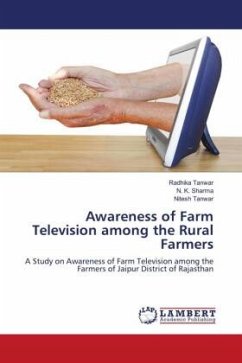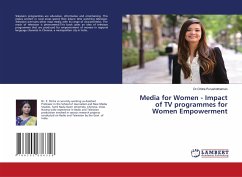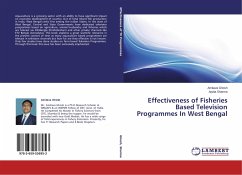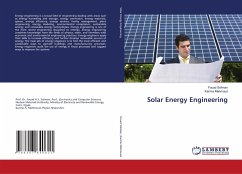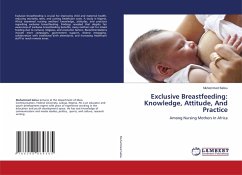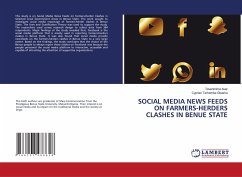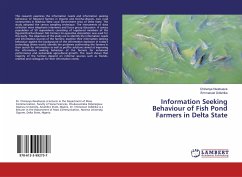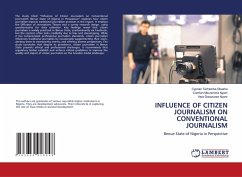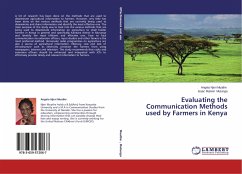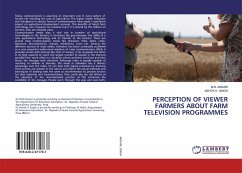
PERCEPTION OF VIEWER FARMERS ABOUT FARM TELEVISION PROGRAMMES
Versandkostenfrei!
Versandfertig in 6-10 Tagen
47,99 €
inkl. MwSt.

PAYBACK Punkte
24 °P sammeln!
Today, communication is assuming an important role in every sphere of human life including the area of agriculture. The higher media utilization and indulgence in various forms of communication have made a significant impact on agricultural development scenario. The benefits of latest farm technology can, however, be realized only if it is shared by the millions of farmers, who are ultimate users. Communication media play a vital role in transfer of agricultural technologies to the farmers. It minimizes the gap between the utility of a new agricultural technology and its transfer to the farmer...
Today, communication is assuming an important role in every sphere of human life including the area of agriculture. The higher media utilization and indulgence in various forms of communication have made a significant impact on agricultural development scenario. The benefits of latest farm technology can, however, be realized only if it is shared by the millions of farmers, who are ultimate users. Communication media play a vital role in transfer of agricultural technologies to the farmers. It minimizes the gap between the utility of a new agricultural technology and its transfer to the farmers. There are several mass communication media like television, films, slides, radio, literature, documentaries, dramas, exhibitions, tours etc. Among the different sources of mass media, television has been universally acclaimed as a very powerful audio-visual medium of mass communication. While it provides words with pictures like that of movies, it far surpasses the latter in its high capacity to reach the largest number of people in the shortest possible time, more often in a situation where audience could see and hear about the message with attention. Although radio is equally capable of reaching to millions in minutes, the visual in television has a distinct advantage over the radio. TV can deal with typical problems by showing them as they are present in the nature and depict the actual methods and techniques of dealing with the same as recommended by persons known for their expertise and trustworthiness. They could also see the effects of the adoption of the recommended practice (s). This enhances the credibility of the message. People learn through the eyes and ears both, and thus remember things better. Further, T.V. viewing does not demand the knowledge, strain and discipline needed to read the printed media. Findings of several studies confirm that agriculture and rural development programmes on TV need to be given sharpness, and thrust so as to make them more useful and relevant. It is, therefore, proposed to study the farmers viewing behaviour of farm telecast programmes and identify reasons for non-viewing or dropping out so that communication process for rural development may be armed with sufficient knowledge related with appropriate feedback and to make occasional necessary midway corrections in order to sustain the farmers interest continuously.The findings of personal and socio-economic characteristics of farmers shall present the nature of farmers which will be of immense help to those who are involved in the socio-economic development of the farming community. It will further suggest some ways for making different media popular as a source of farm information among the farmers. The results on viewing behaviour and attitude towards farm television programmes will work as indicators of how much farmers are interested in using television media and their liking and disliking. The findings of programme preferences and constraints of non-viewing of farm television programmes will also give some insight to media personnel for bringing about improvement in planning, preparation and production of interactive and participatory farm and home programme for the farmers.Therefore, it is hoped that findings of this study will be of great value and use to the planners, policy makers, extension workers and students of extension education who are working in the field of communication media for agricultural and rural development.



